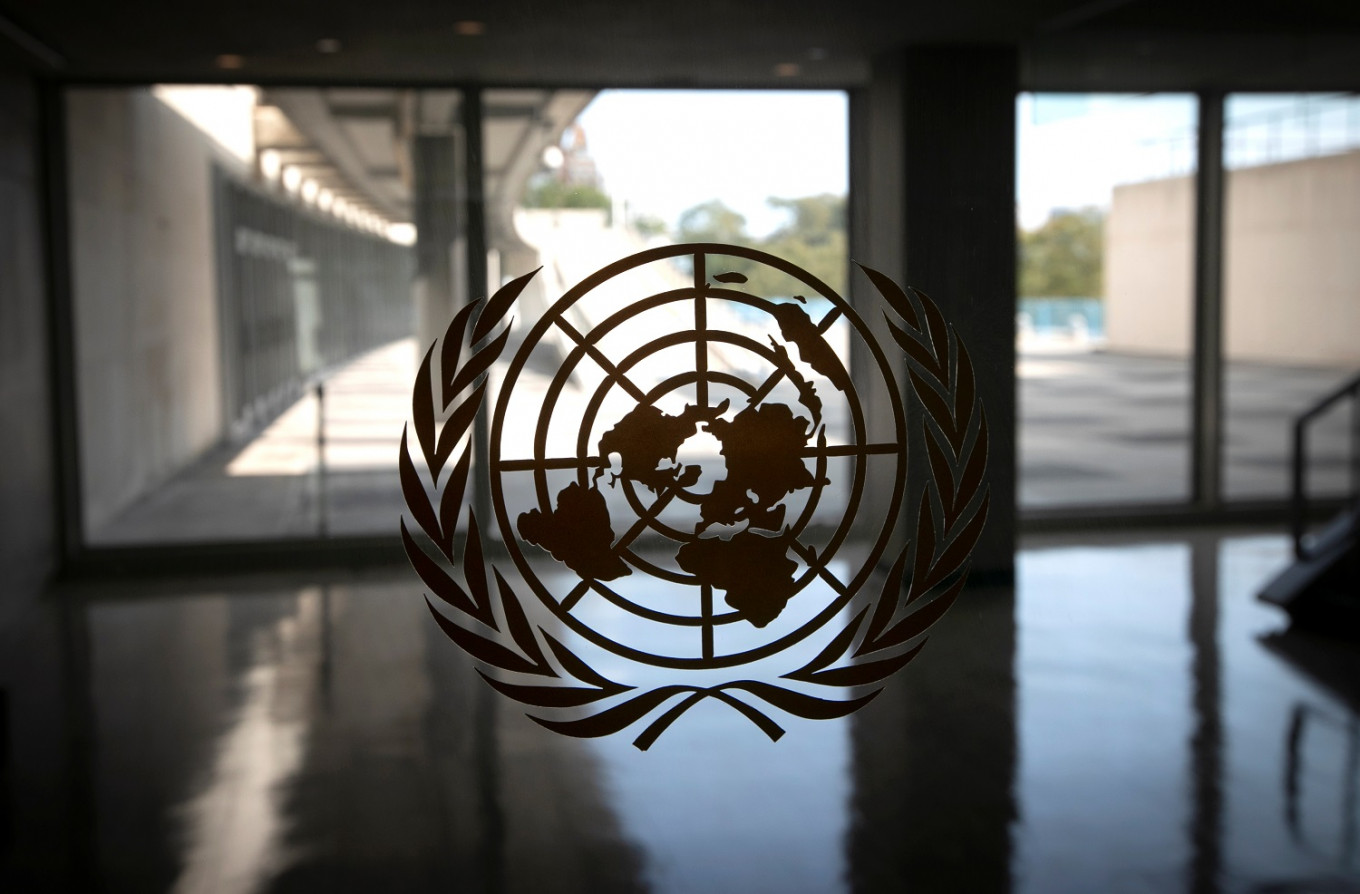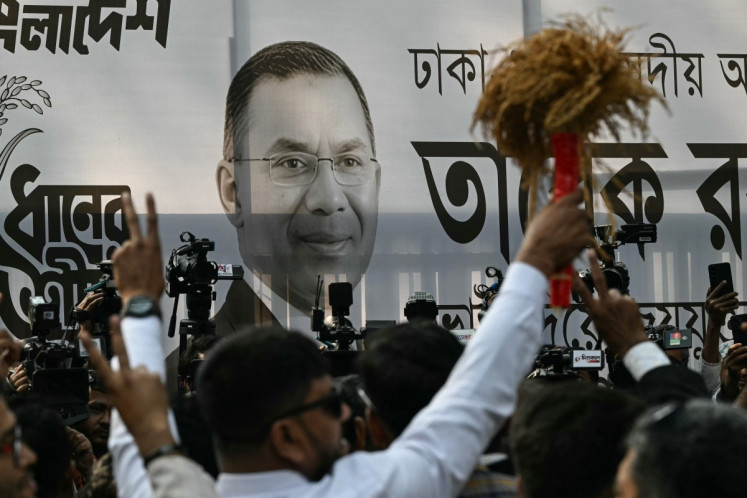Popular Reads
Top Results
Can't find what you're looking for?
View all search resultsPopular Reads
Top Results
Can't find what you're looking for?
View all search resultsNew Criminal Code a threat to privacy, press and human rights, says UN
The House of Representatives approved the legislative overhaul on Tuesday, part of a decades long process to replace its colonial-era penal code.
Change text size
Gift Premium Articles
to Anyone
 The United Nations logo is seen on a window in an empty hallway at United Nations headquarters during the 75th annual UN General Assembly high-level debate, which is being held mostly virtually due to the coronavirus disease (COVID-19) pandemic in New York, United States, on September 21, 2020. (REUTERS/Mike Segar)
The United Nations logo is seen on a window in an empty hallway at United Nations headquarters during the 75th annual UN General Assembly high-level debate, which is being held mostly virtually due to the coronavirus disease (COVID-19) pandemic in New York, United States, on September 21, 2020. (REUTERS/Mike Segar)

The United Nations has expressed concern over threats to civil liberties posed by Indonesia's new criminal code, warning the revised laws could result in the erosion of press freedom, privacy and human rights in the world's third-largest democracy.
The House of Representatives approved the legislative overhaul on Tuesday, part of a decades long process to replace its colonial-era penal code.
The criminal code includes laws that make it an offence to insult the president, the national flag and state institutions.
The laws also require people to get a permit to hold a protest and bans spreading fake news and views counter to state ideology.
Other articles which officials say aim to uphold "Indonesian values" in the world's largest Muslim-majority nation criminalise sex outside of marriage, cohabitation between unmarried couples, the promotion of contraception to minors and abortion for non-rape victims.
"The UN is concerned that several articles in the revised Criminal Code contravene Indonesia's international legal obligations with respect to human rights," the UN's local office said in a statement released on Thursday.
"Some articles have the potential to criminalise journalistic work… Others would discriminate against, or have a discriminatory impact on, women, girls, boys and sexual minorities," it said.
The code could also affect reproductive and privacy rights and exacerbate gender-based violence based on sexual orientation and identity, the statement said.
Civil society groups have slammed the new laws saying the changes constitute a huge democratic setback, and pose a particular risk to LGBT people, who could be disproportionately impacted by the so-called morality clauses.
"Same-sex couples cannot marry in Indonesia, so this clause also effectively renders all same-sex conduct illegal," Human Rights Watch said in a statement.
Responding to criticism of the criminal code, the Law and Human Rights Ministry noted the morality laws, which will not come into effect for another three years, can only be reported by limited parties, such as a spouse, parent or child.
"Investors and foreign tourists don't have to worry about investing and travelling inIndonesia, because people's privacy is still guaranteed by law," the ministry said in a statement.








